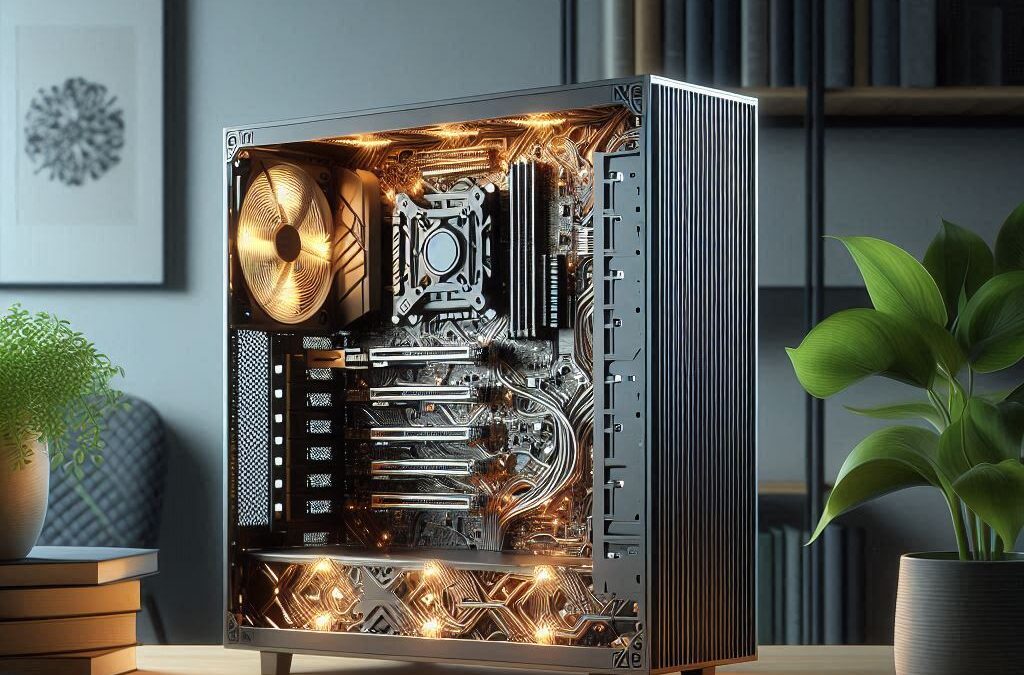In a world where technology is advancing at a rapid pace, the need for sustainable, customizable, and user-friendly computing solutions has never been greater. Enter Framework Computer, a company that is redefining the landscape of personal computing through its innovative modular laptop design. This article explores the concept of modular computing, the philosophy behind Framework Computers, its practical applications, and its impact on both consumers and the environment.
What is Modular Computing?
Modular computing refers to a design approach that allows users to customize and upgrade various components of a computer system easily. This contrasts with traditional laptops and desktops, where many parts are often soldered to the motherboard, making repairs and upgrades complex and sometimes impossible. Modular systems empower users to modify their devices to meet evolving needs or preferences without needing to purchase entirely new units.
The Philosophy Behind Framework Computer
Framework Computer was founded with a mission to create a sustainable and user-centric computing experience. The company prioritizes several key values:
- Sustainability: By designing laptops that can be easily repaired and upgraded, Framework aims to reduce electronic waste—a significant environmental concern. Traditional laptops are frequently thrown away when they become outdated or broken; however, modular laptops can last much longer, with users simply replacing or upgrading specific parts.
- Customization: Framework’s modular approach allows users to tailor their laptops based on personal preferences and work requirements. Whether it’s increasing the RAM for demanding applications or swapping out the battery for a larger capacity, users can configure their machines to suit their needs.
- Transparency and Community Engagement: Framework Computer actively engages with its community and provides documentation for tech-savvy users. This openness promotes a culture of sharing knowledge and encourages users to take ownership of their devices.
- Performance and Innovation: The company focuses on using high-quality components to ensure that performance is not sacrificed for modularity. Users can expect a laptop that meets or exceeds the capabilities of conventional computers while enjoying the benefits of modularity.
Key Features of Framework Laptops
Framework’s flagship product, the Framework Laptop, showcases the company’s modular philosophy:
- Easily Replaceable Parts: The Framework Laptop allows users to swap out components like the motherboard, battery, and screens quickly. The laptop comes with various expansion cards enabling users to add ports such as USB-C, HDMI, and MicroSD card slots based on their needs.
- User Upgradability: Users can upgrade RAM and storage without any specialized tools. The modular design simplifies the processes for users looking to enhance their system’s performance over time.
- Repairability: The laptop is designed for easy disassembly, and Framework provides replacement parts directly through its website. This encourages users to repair their machines rather than discarding them.
- Eco-Friendly Materials: Framework emphasizes sustainability by using recycled materials in its devices, which minimizes the environmental footprint of manufacturing.
The Impact of Framework Computer on Consumers
Framework Computer has the potential to reshape consumer behavior and preferences in several ways:
- Promoting Longevity: By enabling users to upgrade and repair their laptops, Framework encourages a culture of longevity in technology. This mindset can lead to decreased consumer waste and promote the idea of investing in durable goods.
- Empowering Users: The modular nature of Framework laptops gives users more agency over their computing experience. Instead of relying on manufacturers for upgrades or repairs, users can take these tasks into their own hands or choose to consult the community for support.
- Cost-Effectiveness: Although the initial investment in a Framework Laptop may be higher than traditional options, the potential cost savings over time due to repairs and upgrades can be significant. Users can replace or upgrade individual components rather than facing the cost of a new device.
- Inspiring Competition: As Framework Computer gains traction, it may inspire established manufacturers to adopt more sustainable and modular designs, leading to a broader industry shift toward user-friendly and eco-conscious computing devices.
Challenges and Considerations
While Framework Computer presents numerous advantages, it also faces several challenges:
- Market Acceptance: The concept of modularity might not resonate with all consumers, especially those who prefer the convenience of traditional laptops and aren’t inclined to modify their devices. Framework must effectively communicate the benefits of their approach to capture a broader audience.
- Support and Documentation: As the modular laptop is a new concept for many users, comprehensive support and clear documentation will be essential. Framework must ensure that customers have the necessary resources to utilize their products effectively.
- Scaling Production: As demand grows, Framework may face challenges in sourcing components and scaling production without compromising quality. Maintaining a supply chain that remains true to their eco-friendly philosophy will be key to their success.
Framework Computer and the Future of Computing
Framework Computer represents a significant shift towards a more sustainable and user-friendly approach to computing. As consumer awareness around environmental issues increases and the demand for customizable devices rises, the company’s vision is timely and relevant.
The success of Framework hinges on its ability to foster a community around modular computing—one that values sustainability, repair

